Ask AI on The Internet
Question: 1. Decolonisation (Education) An active process to change the Western-dominated philosophy and approach to education to a balanced approach where indigenous knowledge and pedagogies are acknowledged and genuinely incorporated into the formal educational system. Multiple perspectives are included to make education relevant and practical to address needs and challenges within specific contexts. (Owuor:2007) Principles: Mkabela – An African approach to education Own understanding of the concept and examples of implementation and teaching practice. ……………………………………………………………………………………………………………… ……………………………………………………………………………………………………………… ……………………………………………………………………………………………………………… ……………………………………………………………………………………………………………… ……………………………………………………………………………………………………………… ……………………………………………………………………………………………………………… ……………………………………………………………………………………………………………… 2. African communalism: Community and belonging to a community are an important aspect of African life. An individual is conceptualised in terms of their connectedness in a community. Letseka (2000). Principles: Individuals are interdependent. Human relationships are important. Content and knowledge must be useful for practice. Own understanding of concept and examples of implementation and teaching practice. ……………………………………………………………………………………………………………… ……………………………………………………………………………………………………………… ……………………………………………………………………………………………………………… ……………………………………………………………………………………………………………… ……………………………………………………………………………………………………………… ……………………………………………………………………………………………………………… 14 3. Ubuntu (humanness) A philosophy that promotes the common good of society. It focuses on ethical standards that a person acquires throughout their life and therefore education also plays a very important role in transferring the African philosophy of life. The values of caring, sharing and dignity are important. (Mosana) Principles: Understanding the uniqueness of all persons. Recognising the humanity of others to affirm your own humanity. Welfare of others is important. Fairness and humanness are crucial to personal well-being. In a fulfilled and flourishing life people are reasonably well fed, well clothed and housed, in good health, loved, secure, and able to make a conscious effort to treat others with fairness and humanness. Fairness and communality; individuals are interdependent. Human relationships are important. Therefore, respect, interpersonal skills and cooperative skills are important. Own understanding of the concept and examples of implementation. What does this mean in your practice as a teacher? ……………………………………………………………………………………………………………… ……………………………………………………………………………………………………………… ……………………………………………………………………………………………………………… ……………………………………………………………………………………………………………… ……………………………………………………………………………………………………………… ……………………………………………………………………………………………………………… ……………………………………………………………………………………………………………… ……………………………………………………………………………………………………………… TPN2601/103 15 4. Africanisation: Using an African point of departure to change or incorporate the African outlook and character in all aspects of an education grounded in a South African context. Principles: Our schools are situated in the South African context. Principles that guide African ways of thinking, which may be invaluable in making education more accessible to South African learners: Examples: Respect different ways of learning, (Letseka), use different processes and methods of assessment (Beets & Le Grange). Use examples from South Africa and other countries. Own understanding of the concept and examples of implementation. What does this mean in your practice as a teacher? ……………………………………………………………………………………………………………… ……………………………………………………………………………………………………………… ……………………………………………………………………………………………………………… ……………………………………………………………………………………………………………… 5. Indigenous Knowledge System (IKS) A complex set of activities, values, beliefs and practices that has evolved over time and is still actively practised. IKS is developed and sustained through traditional education. It provides skills, trade, training and socialisation avenues. It is a process of knowledge transmission that occurs within the context of family, community and cultural age groups. A lifelong learning process involving progression through age groupings, seniority and others’ wisdom. Principles: Knowledge and wisdom advance with the age and life experiences of individuals. Knowledge is acquired through interaction with daily experiences and reflects the community’s value systems. The purpose of IKS is to place knowledge within the context of the user. It is handed down from one generation to another. It involves the expertise of multiple teachers. Mazrui refers to pillars of wisdom in integrating indigenous knowledge – tolerance, social justice, and the like. Lave and Wenger mention situated learning while Letseka talks about ubuntu values such as respect and ways of learning. Own understanding of the concept and examples of implementation. What does this mean in your practice as a teacher? ……………………………………………………………………………………………………………… ……………………………………………………………………………………………………………… ……………………………………………………………………………………………………………… ……………………………………………………………………………………………………………… ……………………………………………………………………………………………………………… 10
Let's go through the concepts one by one, and I'll provide insights along with examples of implementation and teaching practice. ### 1. Decolonisation (Education) **Own Understanding and Examples:** Decolonisation in education is about shifting away from the traditionally Western-centric educational frameworks and embracing diverse, indigenous knowledge systems. This involves recognizing and valuing the educational philosophies, histories, and cultural practices of indigenous communities. For example, in a history class, instead of only focusing on European explorers, the curriculum would include significant indigenous figures and events. It could involve community leaders or elders in the teaching process, bringing their knowledge and perspectives to the classroom. **Implementation:** - **Curriculum Design:** Integrate literature, science, history, and art from indigenous cultures. - **Pedagogy:** Adopt teaching methods that reflect indigenous ways of knowing, such as storytelling, community projects, and experiential learning. - **Collaboration:** Partner with local indigenous communities to co-create learning modules. ### 2. African Communalism **Own Understanding and Examples:** African communalism emphasizes the collective over the individual. It sees personal identity as rooted in community belonging. This perspective prioritizes interdependence, mutual support, and shared responsibility. For instance, students can work on group projects that benefit the community, like planting a communal garden or creating awareness campaigns for local health issues. **Implementation:** - **Group Work:** Emphasize collaborative projects and peer teaching. - **Service Learning:** Incorporate community service into the curriculum. - **Mentorship:** Pair students with community mentors to foster their personal and communal growth. ### 3. Ubuntu (Humanness) **Own Understanding and Examples:** Ubuntu is an African philosophy that highlights shared humanity and compassion. It underscores that our humanity is enhanced through our relationships with others and prioritizes collective well-being, dignity, and respect. As a teacher, this could mean creating an inclusive classroom environment where each student's worth is recognized and celebrated, and where cooperative activities are central. **Implementation:** - **Classroom Culture:** Foster an environment of respect, empathy, and support. - **Conflict Resolution:** Use restorative practices to handle conflicts, focusing on healing and reconciliation. - **Character Education:** Teach values like kindness, fairness, and mutual aid explicitly. ### 4. Africanisation **Own Understanding and Examples:** Africanisation is about aligning educational content and practices with the local African context, ensuring relevance and accessibility for learners. This means integrating African languages, cultural contexts, and local perspectives into the curriculum. For example, using local case studies in business education or teaching mathematics using examples from everyday life in South Africa. **Implementation:** - **Localized Content:** Use local examples and case studies in teaching materials. - **Language Inclusion:** Teach and allow assessments in local languages. - **Context Relevance:** Adapt teaching methods to reflect the socio-economic realities and cultural practices of the students' communities. ### 5. Indigenous Knowledge System (IKS) **Own Understanding and Examples:** IKS refers to the traditional knowledge developed by indigenous communities over centuries. It includes practical knowledge about farming, healing, construction, and social practices, transmitted through generations. In education, this could mean teaching scientific principles using indigenous agricultural practices or having students learn about local medicinal plants and their uses. **Implementation:** - **Experiential Learning:** Take students on field trips to learn directly from indigenous practitioners. - **Intergenerational Learning:** Invite elders to impart their wisdom and experiences in the classroom. - **Skill Development:** Teach practical skills that are valuable in the local context, like traditional crafts or ecological conservation techniques. In my practice as a teacher, these concepts would translate into: - **Respecting Diversity:** Incorporating diverse viewpoints and learning styles. - **Building Community:** Creating classrooms that function as support networks, emphasizing collective achievements and shared successes. - **Human-centered Education:** Promoting values and skills that enhance students' understanding of themselves and their roles in their communities. - **Contextually Relevant Learning:** Ensuring that what is taught has direct relevance to the students' lives and societal needs. By embedding these principles into teaching practices, education becomes a powerful tool for cultural preservation, community building, and personal development.
Think your answer is better than the AI's? Post it below.
Other Most Relevant Posts:
Question Tags
If you want your question answered by an AI, click here.
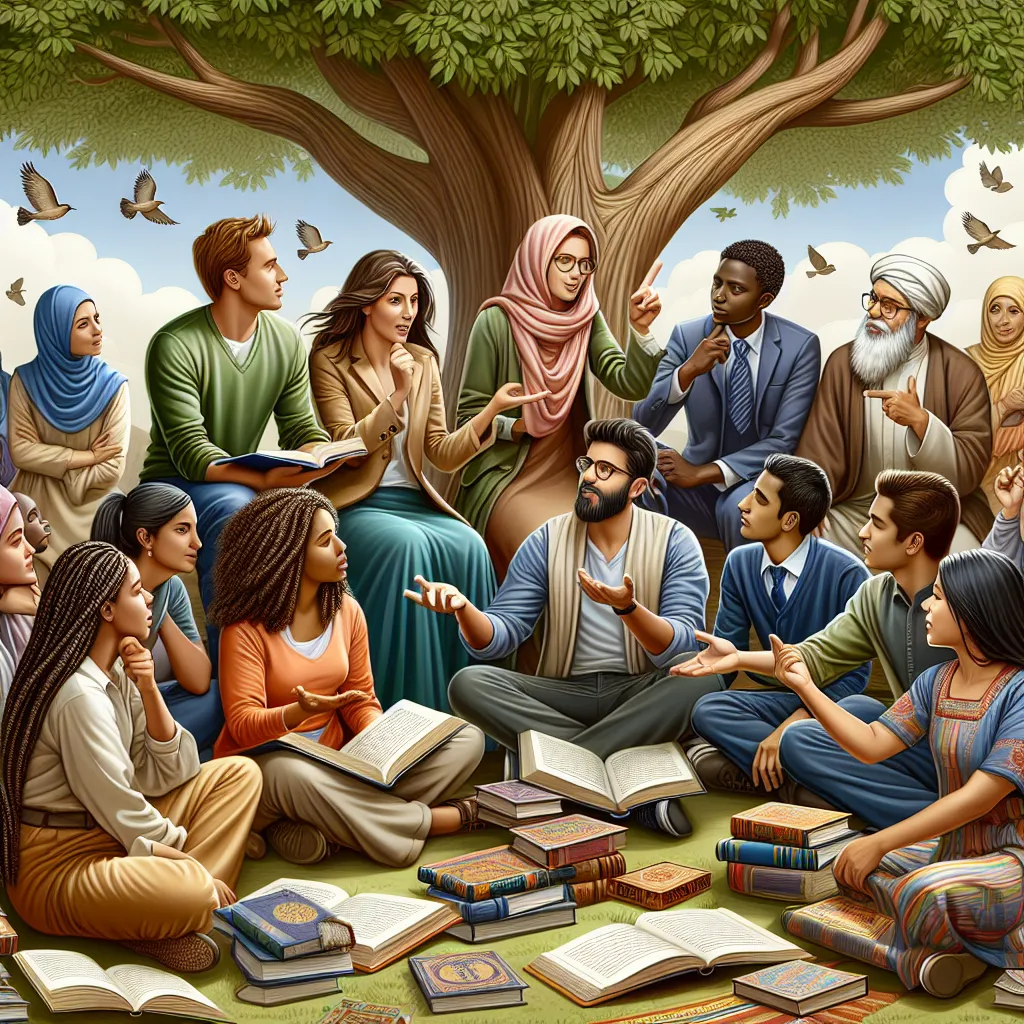
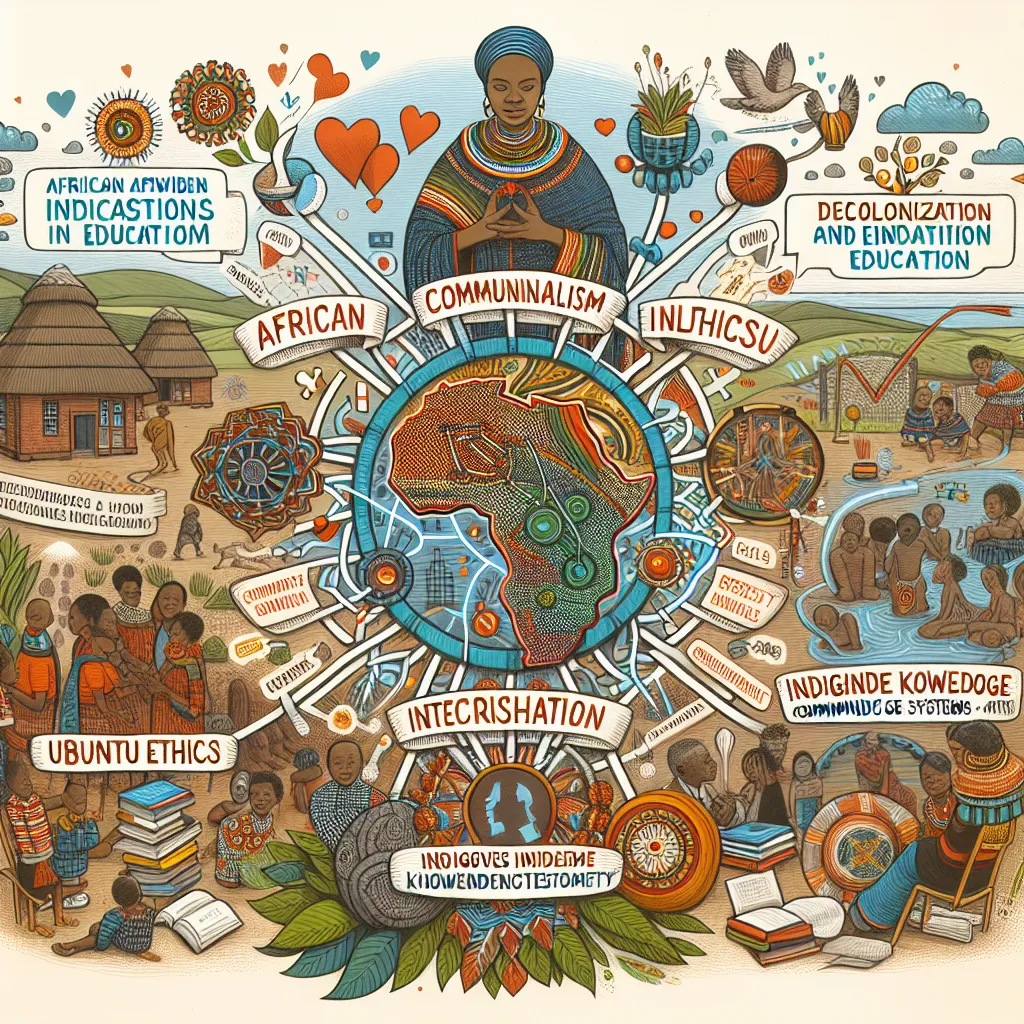
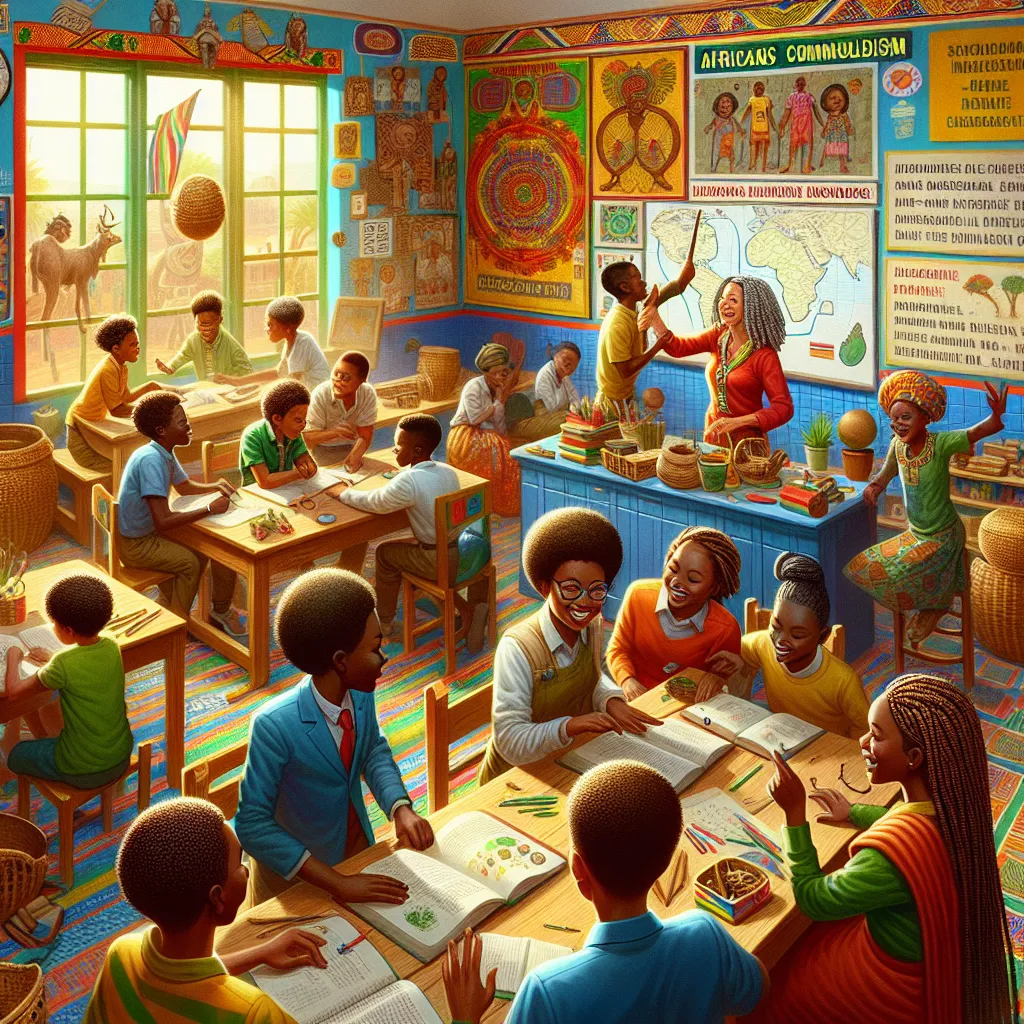
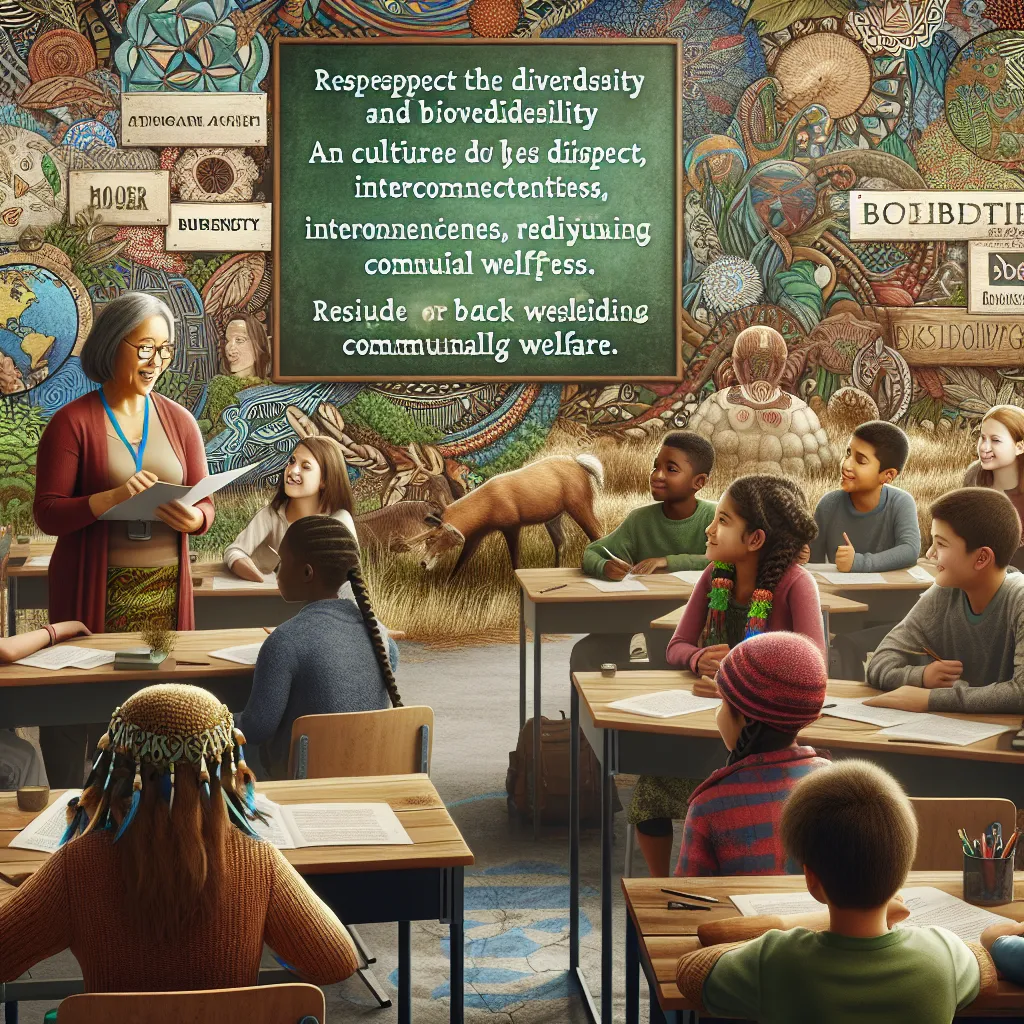
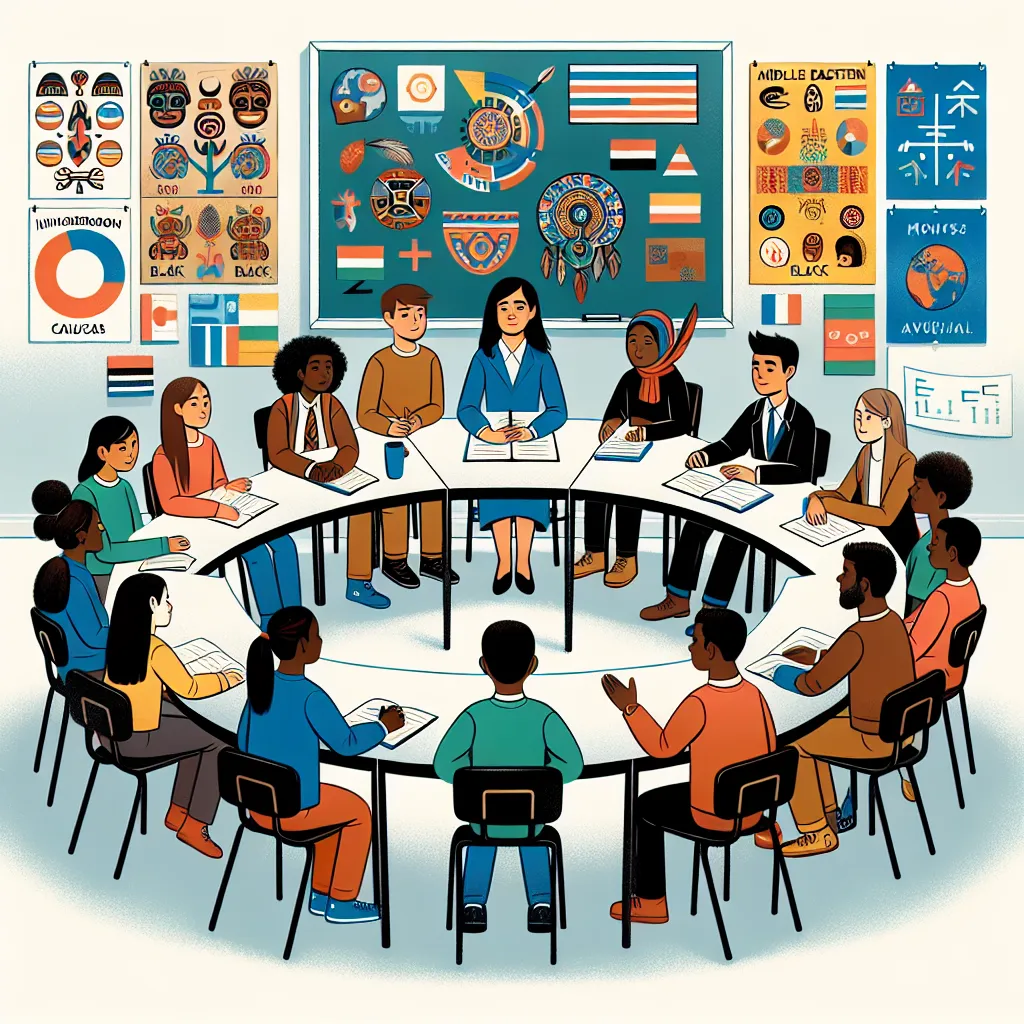
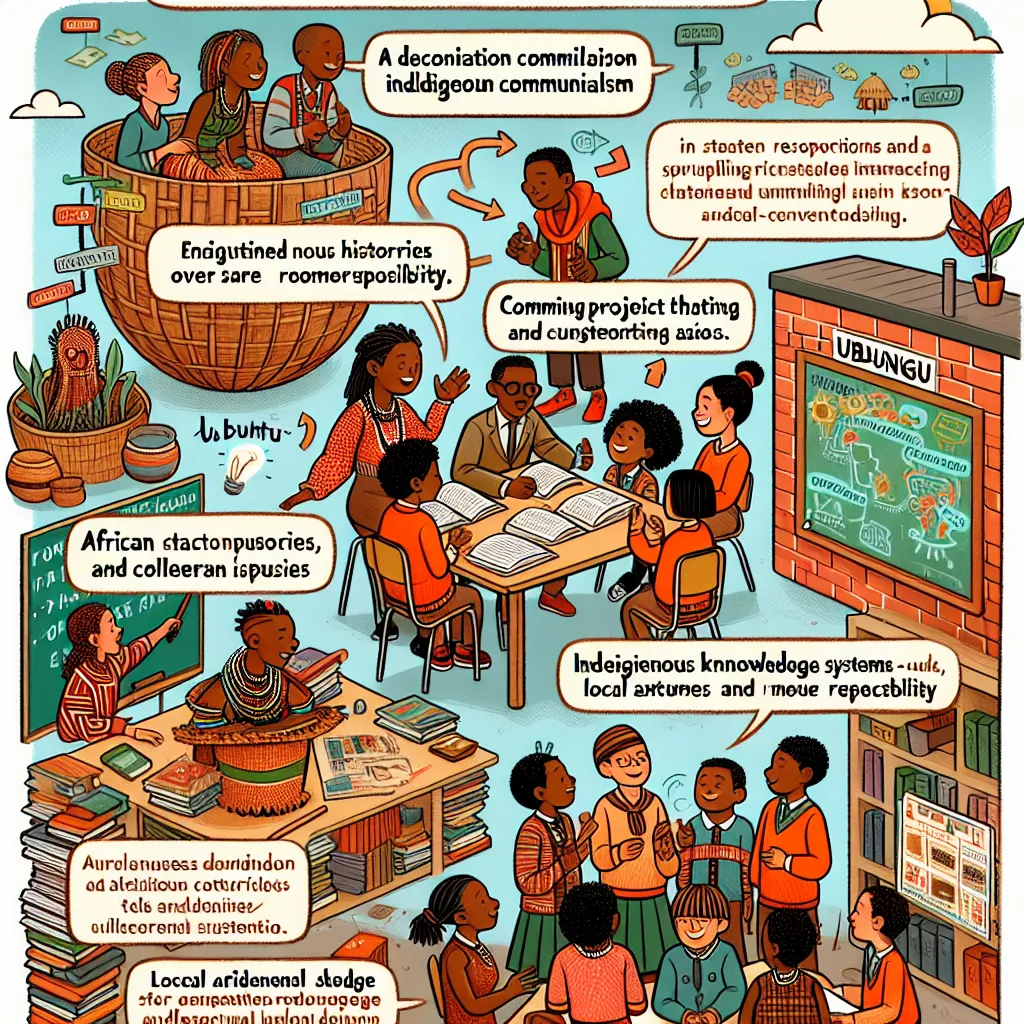
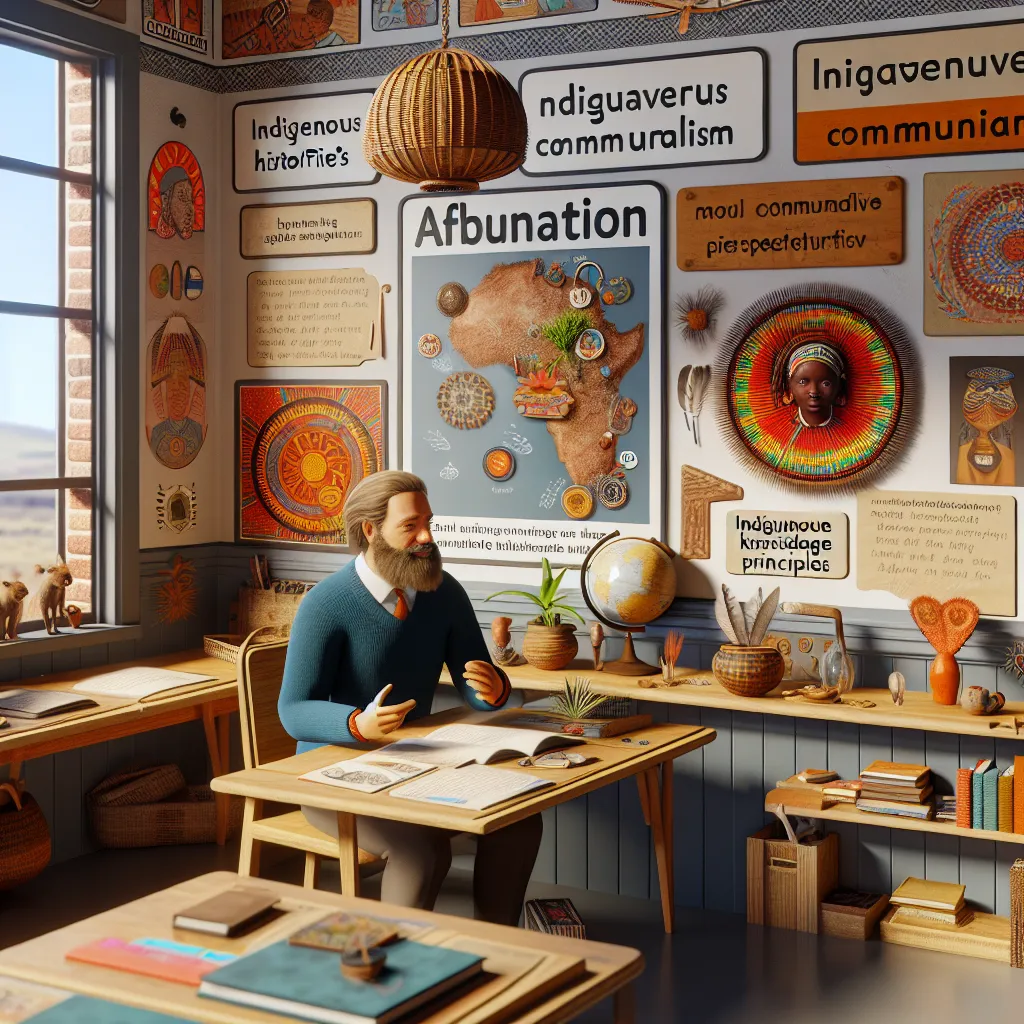
Post your own comment: